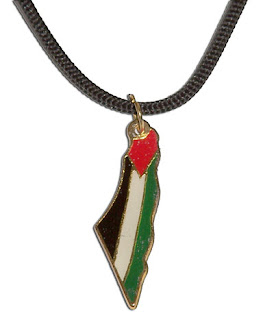By Miri –
As a result of its turbulent history, of numerous conquests, occupations, and partitions administered by different powers, the official name of our region has been constantly changing. Similarly, its borders were and continue to be redrawn as a consequence of the struggles between different powers for control over the region as a whole. At times the land was internally divided, at others, the entire region became part of a larger political unit, but hardly ever was it under the uniform control of its residents, who would thus be in the position to give it a name. The case of this region thus shows that place-names are by no means persistent phenomena, that, once applied, continue in use, but that they are rather subject to change.
So does it actually matter that this place was once a Roman colony called Palestina or that the name “Israel” was already used in the Bible to refer to this piece of land? Does it matter whether we refer to it today as Israel, Palestine, Occupied Palestine, Israel/Palestine, Palestine/Israel, the Zionist Entity, Israstine, Palesrael, or simply, the (Un)Holy Land?
Lewis Carroll, the author of Alice in Wonderland, gives us the following answer:
“When I use a word,” Humpty Dumpty said, in a rather scornful tone, “it means just what I choose it to mean – neither more nor less”
“The question is,” said Alice, “whether you can make words mean so many different things.”
“The question is,” said Humpty Dumpty, “which is to be master – that’s all”
Humpty Dumpty/Carroll thus tells us that speech is not a neutral act, and as such, naming a place is also always an assertion of power.
According to Cohen and Kliot place-names “represent an expression of the manipulation of political landscape to achieve desired ideological objectives”, a notion that is not only true for this region, but for the world as a whole. Think for instance about the process of renaming cities such as Leningrad back to St. Petersburg after the collapse of the Soviet Union in 1991, a move that clearly signified a break with the communist past.
Place-names are symbols and part of the process of attaching certain meaning to one’s surrounding. Within the context of nation states, place-names constitute important nationalist symbols, just like flags and anthems. As opposed to most parts in Europe, where states, such as the United Kingdom and France have already achieved a certain level of maturity, the relatively young State of Israel with its ongoing conflicts with the surrounding countries, as well as the formally non-existing Palestinian state are still under pressure to invent and reproduce nationalist symbols to assert their nationhood and often enter into a competition over those same symbols.
The place-name variants for Jerusalem, a place imbued with a lot of significance for both populations, “Yerushalayim” in Hebrew and “Al-Quds” in Arabic, show how the process of naming a place evokes powerful emotions within different groups. The reference to Yerushalayim as a united city, a notion that is still not formally recognised by the international community, further expresses how this process is part and parcel of the manipulation of the political environment.
In the aftermath of the formation of the Israeli state in 1948, only 73 out of 889 place-names retained their Arab origin (not to mention those places that were completely erased during and after the War of Independence in 1948), all other towns and settlements, together with streets, buildings and parks got Hebrew names. The newly created Palestinian refugees in turn, started a similar process in exile by organising and naming refugee camps after pre-1948 Palestinian villages. According to Peteet, those villages were thus “relocated, newly landscaped and socially reconfigured, while their original geographic spaces were renamed and occupied by foreigners”.
 |
| West Bank road signs, where the Arabic has been erased |
During Israel’s early days, the common usage of biblical and Talmudic place-names did not reflect religious fervor or religious nationalism, but rather served to evoke a symbolic identification with Jewish nationhood by bringing the past into the present and by creating a bond of continuity between the landscape and society. Naming places after important political figures or events, on the other hand, aided the process of invoking history and culture, which in turn linked the territory and people to the state.
 |
| Reinscribing the Arabic on a vandalised street sign |
Due to the inextricable link between naming and power, the process of place-naming can also shed light on the internal conflicts and power shifts within one and the same group. Immediately after the election victory of the Likud party in 1977, for instance, which constituted the first major shift towards the right, the term “Judea and Samaria” was formally adopted as official usage, replacing the former “Occupied Territories” or “Administered Territories” used by the previous Labour government. Both terms are reflecting the political attitude of the respective party towards the West Bank and Gaza; while Judea and Samaria evoke a notion of continuity, the term “Occupied” or “Administered Territories” imply a more temporal stage. Similarly the recent increase in Biblical names for new settlements in the West Bank, reflect the increase in ideological zeal among settler community.
 |
| Necklace showing the map of Israel |
In the case of this place, whatever its name is, it becomes obvious that maps referencing the names of places, clearly cease to be geographical and instead turn into acts of faith or calls to action as each party is trying to superimpose its name over the same territories. Whose nomenclature prevails derives from the ability to have one’s narration and lexicon accepted as the standard one.
 |
| Necklace showing the map of Palestine |


Comment (0)